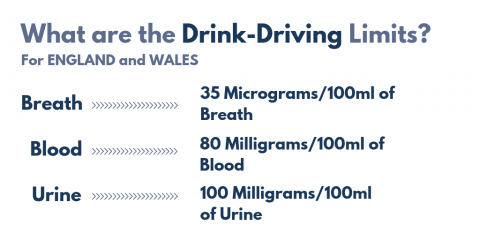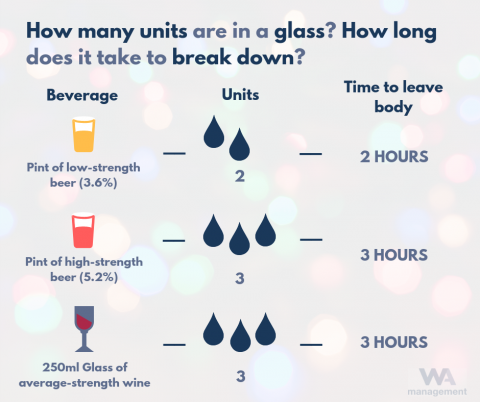 It’s the most wonderful time of the year! Streets and homes are bedecked in beautiful lights, copious amounts of gorgeous food render us stotious, and companies up and down the country wind down with festive parties and celebrations. Christmas events can be a fantastic way to relax, spend time with your colleagues and look forward to the opportunities and challenges that the new year will bring.
It’s the most wonderful time of the year! Streets and homes are bedecked in beautiful lights, copious amounts of gorgeous food render us stotious, and companies up and down the country wind down with festive parties and celebrations. Christmas events can be a fantastic way to relax, spend time with your colleagues and look forward to the opportunities and challenges that the new year will bring.
However, recent statistics have shown that alcohol consumption rockets up 43% in the month of December – unsurprisingly because over 11 million of us will attend an often-boozy Christmas party in some form. So what are some of the key laws surrounding Christmas alcohol consumption? This blog looks to discuss some of the key risks, and ways in which we can all ensure we enjoy the festive season responsibly.
Have a (moderately) Merry Christmas
As mentioned, Christmas parties are a often incredibly enjoyable way to end the year with a bang. Companies are encouraged to use the more relaxed atmosphere to commend great work, and reinvigorate the workforce moving forward. But what are some of the key risks surrounding a Christmas Party?
Don’t be the Turkey this Christmas
The overconsumption of alcohol over the Christmas period can have both professional and physical consequences. Many companies state that if an employee is inebriated beyond control; it can hinder their future employment prospects.
Equally, drinking too much can have both short and long-term medical dangers. Intoxication lowers your inhibitions, causing you to do unsafe activities that you otherwise may not. Regular overconsumption of alcohol is also proven to be linked to liver disease, kidney failure, heart failure and obesity. The NHS recommends that individuals do not regularly exceed 14 units of alcohol per week, or the equivalent to 7 pints of medium strength beer.

The Sober Truth of Drink Driving
 As mentioned, December sees the number of Drink-Driving prosecutions soar as offenders increase and many during the festive period are more willing to take the risk. Indeed, of the average 70,000 annual convictions for Drink-Driving, over 20% take place in December. Motorists, regardless of whether they have been drinking or not, are reported to be 3 times more likely to be breathalysed, with an average of 8% of breathalysing tests returning as a failure.
As mentioned, December sees the number of Drink-Driving prosecutions soar as offenders increase and many during the festive period are more willing to take the risk. Indeed, of the average 70,000 annual convictions for Drink-Driving, over 20% take place in December. Motorists, regardless of whether they have been drinking or not, are reported to be 3 times more likely to be breathalysed, with an average of 8% of breathalysing tests returning as a failure.
The law is unequivocal, unambiguous and unnegotiable when it comes to drink-driving. Those caught above the limit (indicated in our graphic above) risk everything from a temporary driving ban to time in prison. WA Management cannot stress enough how unnecessary the risk is, and how much danger it can but yourself and others in.
The final consideration to make is on just how long it takes for alcohol to leave the system. NHS guidelines state that the average human process approximately 1 unit of alcohol per hour. This means that a large glass (250ml) of standard strength wine takes at least 3 hours to break down. Consequently, you may still be over the drink-driving limit hours after you stopped drinking. Factor this in when you may be driving the morning after, as if you finish a party at 2am with 10 units in your system, you are not legally safe to drive until midday.

Conclusions
In conclusion, everyone wants to have fun at Christmas – and here at WA, we are certainly encouraging you to relax (you have earned it). However, it is always prudent to think of ways you can be responsible. For example, you can
- Mix non-alcoholic drinks: a great way to feel better and stay safe is to mix your alcoholic drinks with fantastic and delicious non-alcoholic alternatives. Click HERE for some fantastic recipes for NA cocktails.
- Create a relaxed atmosphere: If you are an employer, work hard to create an inclusive environment, where no one is pressured into drinking.
- Take a step back: if you are worried about your drink-driving limits at all – DO NOT TAKE THE RISK – it is infinitely better to err on the side of caution, as you ensure no one gets hurt.
From everyone here at WA, have a wonderful Christmas and a (moderately) merry New Year!
Key Links
NHS Advice on regular drinking advice HERE
NHS Advice on Drink Driving HERE
